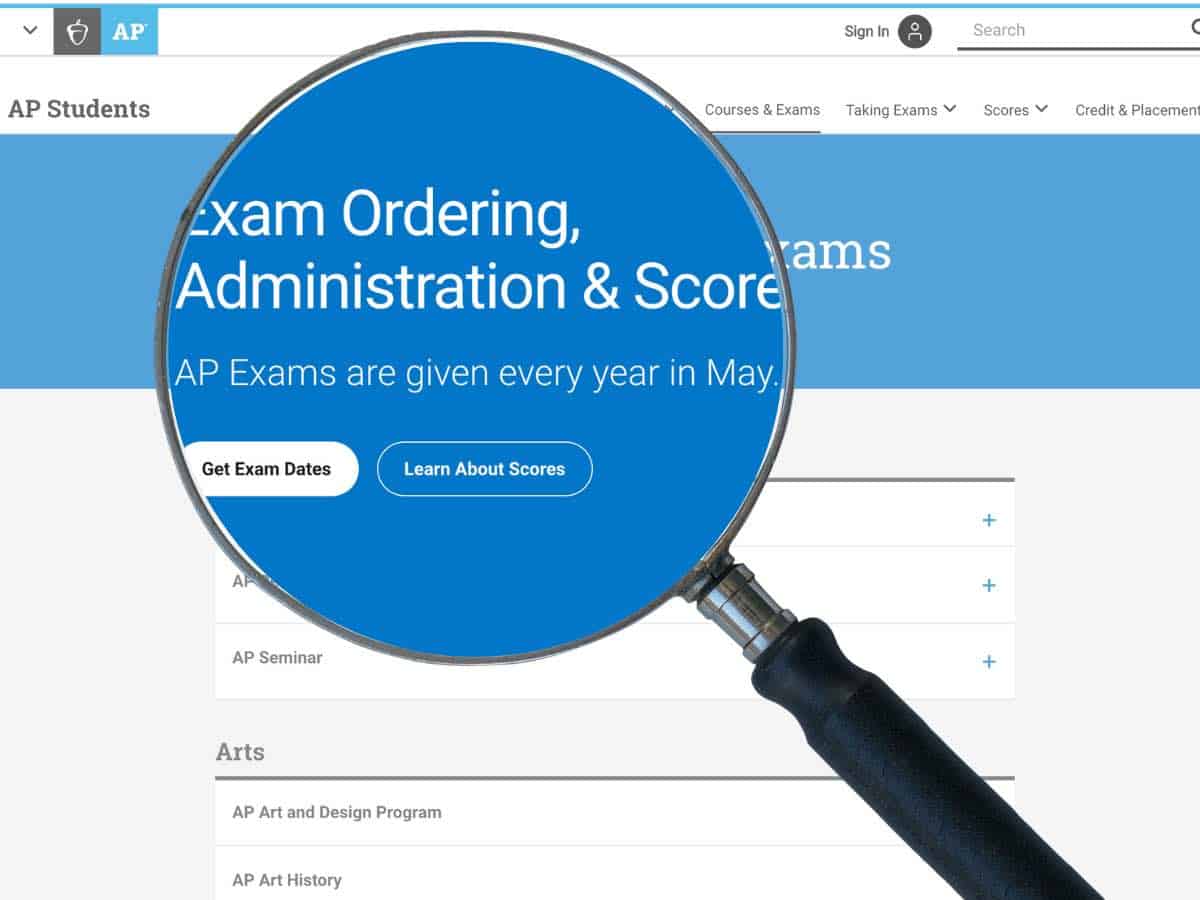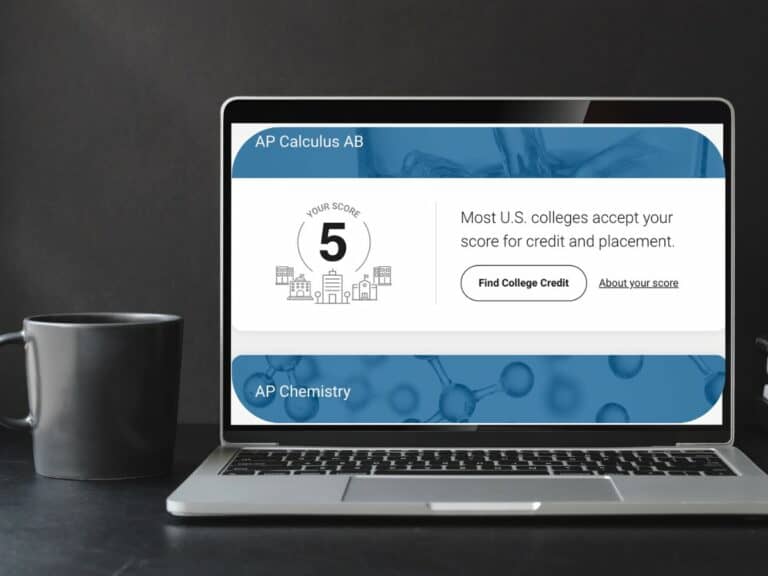AP Exams: The Golden Ticket to Harvard and MIT or Just Another Hurdle?
Harvard University and the Massachusetts Institute of Technology (MIT) share many things.
They are in US News’ top three Best National Universities.
They offer some of the best undergraduate engineering, computer science, and business programs.
And did I already mention they both have outrageously low acceptance rates?
Harvard accepts only 3% of applicants, and MIT accepts only 4%.
They also participate in the Advanced Placement (AP) program, which means they award college credit for AP exams — in fact, Harvard gives anywhere from 4 to 8 credits, while MIT gives up to 9 credits!
Yes, it’s worth taking AP exams if you intend to go to Harvard or MIT and want to save money, graduate sooner, or have time to declare another major or have an additional minor.
However, these selective schools accept only the most challenging AP exams.
In addition, they accept no AP exam score lower than a 5.
But if you’re more interested in getting into Harvard or MIT than earning college credit, I would suggest taking difficult AP courses to increase your academic rigor and boost your weighted GPA.

Will Give AP Exam Credits But Only If…
Both Harvard and MIT participate in the AP program.
It means they accept AP exam scores and award credits, thus allowing students to finish their undergraduate studies faster or have space in their busy schedules to add another major or minor.
However, be warned: you need a perfect AP score of 5 to get college credit!
It’s an AP Exam Score of 5 or Nothing
Numerous colleges and universities partaking in the AP program give credit to AP exam scores of at least 3.
More selective ones usually accept scores of 4 or 5.
Not Harvard and MIT — these highly competitive schools accept nothing but AP exam scores of 5.
Before you sit for any Advanced Placement examination to get college credit as a Harvard or MIT undergraduate student, you only need to set your mind on one goal and one goal only: to have a perfect score of 5.
Can you retake AP exams without taking the class?
Absolutely!
You can take and retake AP exams without attending their corresponding AP courses.
Similarly, you can take AP courses without taking their corresponding AP tests afterward.
The AP Exam’s Difficulty Level Matters
Additionally, like many AP program-participating postsecondary institutions, both colleges do not accept all AP exams, meaning it’s a must to determine beforehand which ones can potentially earn you credit.
It goes without saying that you can earn Harvard AP credit or MIT AP credit only for challenging AP exams with a score of 5.
The following are the AP exams you may take and the minimum score you must obtain in each to enjoy college credits (the maximum number possible indicated below) at Harvard University:
| AP Exam | Minimum Score | Maximum Credits |
|---|---|---|
| AP Art History | 5 | 8 |
| AP Biology | 5 | 8 |
| AP Calculus AB | 5 | 4 |
| AP Calculus BC | 5 | 8 |
| AP Chemistry | 5 | 8 |
| AP Chinese Language and Culture | 5 | 8 |
| AP English Language and Composition | 5 | 4 |
| AP English Literature and Composition | 5 | 8 |
| AP European History | 5 | 8 |
| AP French Language and Culture | 5 | 8 |
| AP German Language and Culture | 5 | 8 |
| AP Italian Language and Culture | 5 | 8 |
| AP Japanese Language and Culture | 5 | 8 |
| AP Latin | 5 | 4 |
| AP Macroeconomics | 5 | 4 |
| AP Microeconomics | 5 | 4 |
| AP Physics C: Electricity and Magnetism | 5 | 4 |
| AP Physics C: Mechanics | 5 | 4 |
| AP Psychology | 5 | 4 |
| AP Spanish Language and Culture | 5 | 8 |
| AP Spanish Literature and Culture | 5 | 8 |
| AP Statistics | 5 | 4 |
| AP United States History | 5 | 8 |
Meanwhile, to enjoy college credits at MIT, here are the AP tests you may take, the minimum score you must get in each, and the maximum number of credits you can have:
| AP Exam | Minimum Score | Maximum Credits |
|---|---|---|
| AP 2-D Art and Design | 5 | 9 |
| AP 3-D Art and Design | 5 | 9 |
| AP Art History | 5 | 9 |
| AP Chinese Language and Culture | 5 | 9 |
| AP Comparative Government and Politics | 5 | 9 |
| AP Drawing | 5 | 9 |
| AP English Language and Composition | 5 | 9 |
| AP English Literature and Composition | 5 | 9 |
| AP European History | 5 | 9 |
| AP French Language and Culture | 5 | 9 |
| AP German Language and Culture | 5 | 9 |
| AP Human Geography | 5 | 9 |
| AP Italian Language and Culture | 5 | 9 |
| AP Japanese Language and Culture | 5 | 9 |
| AP Latin | 5 | 9 |
| AP Music Theory | 5 | 9 |
| AP Research | 5 | 9 |
| AP Seminar | 5 | 9 |
| AP Spanish Language and Culture | 5 | 9 |
| AP Spanish Literature and Culture | 5 | 9 |
| AP United States Government and Politics | 5 | 9 |
| AP United States History | 5 | 9 |
| AP World History: Modern | 5 | 9 |
Does Harvard or MIT require AP scores?
Harvard and MIT do not require applicants to submit AP scores. Admitted individuals should submit their AP scores if they want to earn credits, but only if they take the right AP exams and get the right scores.
Similarly, Harvard and MIT do not require AP scores during the admissions process.
Cost: A Must Other Than Reviewing Well
Students from low-income families should know that sitting for AP exams doesn’t come for free.
Each Advanced Placement exam costs $98.
The AP exam fee remains the same no matter the length of test time, the number of sections, and whether or not the questions are multiple-choice, short answer, or free response.
Of course, you need to shell out $98 regardless of whether the AP exam is easy or difficult.
According to the College Board, the creator and administrator of the AP program, high schools may require students to pay a higher exam fee to cover the cost of proctoring and provision.
So, in other words, you may or may not pay more than $98 per AP exam you sit for.
Exam Fee Reduction
Unfortunately, the College Board does not offer an AP exam fee waiver.
But do not worry if the steep AP exam fee will cause financial hardship for your family because AP exam reductions are available for eligible high school students.
If you qualify for an AP exam fee reduction, you will only pay $53 for every exam.
Here’s the math: the College Board reduces $36 from the $98 AP exam fee, and it expects high schools to waive the rebate for students worth $9, thus resulting in a $53 AP examination fee.
Fee Reduction Eligibility Requirements
It’s not as simple as whether or not you demonstrate some form of financial need that you can enjoy the College Board’s fee reductions for AP exams you wish to take.
First, it’s best to determine if your high school participates in the Community Eligibility Provision (CEP).
The Congress established the CEP via the Healthy, Hunger-Free Kids Act of 2010.
This program allows high-poverty schools and districts in the United States to serve breakfast and lunch at no cost to all enrolled students without collecting household applications.
CEP- and non-CEP-participating schools share some criteria for who qualifies for an AP exam reduction.
However, they differ when it comes to whether the test-taker qualifies as an identified student or is eligible to be directly certified without having to apply for free school meals.
Read Next: What Happens if You Fail an AP Class or Exam
Disclaimer: The views and opinions expressed in this article are those of the authors and do not necessarily represent those of the College Reality Check.





